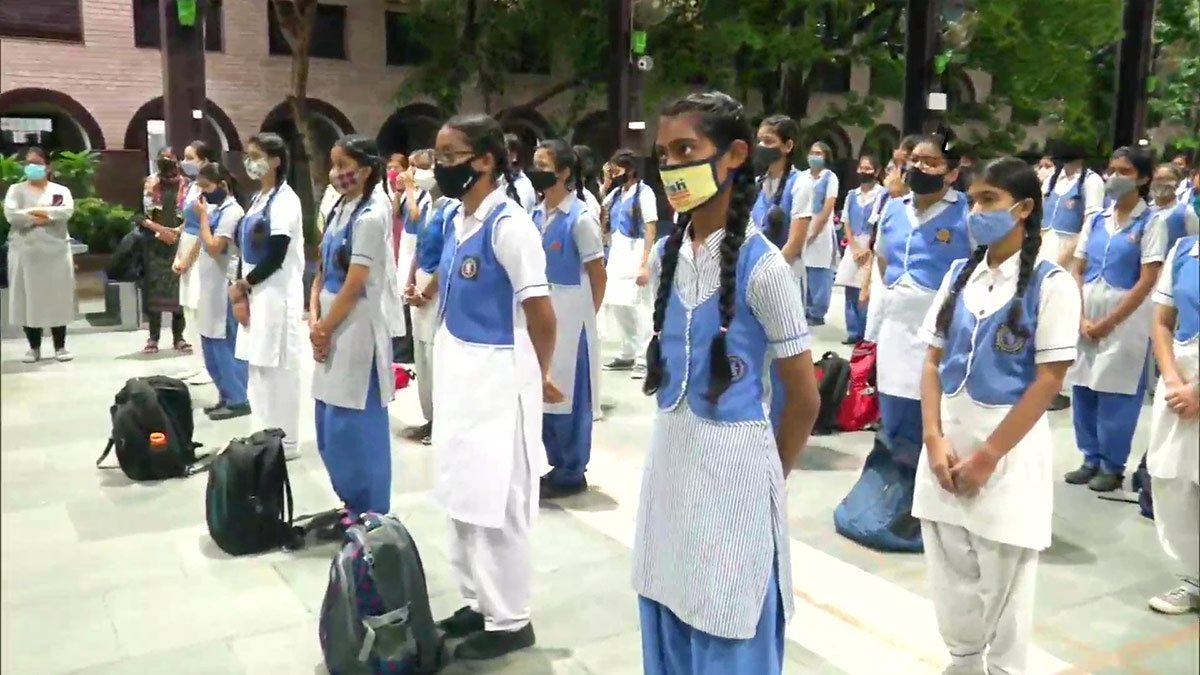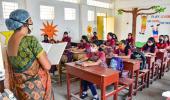With India set to begin vaccination of children in the 15-18 age group from January 3 against coronavirus, Dr Gagandeep Kang, a leading virologist, has said that children should go to schools as COVID-19 infection is not much severe in them.

"I believe we should be sending children to school, as generally COVID-19 infections are not much severe in children. It is classes and the learning that they get in classrooms or the interactions of their peers that offer them so much more benefit than the small risk that if they go to school, they will acquire infection which will result in severe disease," Dr Kang told ANI in an interview.
"In children, fortunately, infections with SARS-CoV-2 are generally not severe. There is a risk of long COVID, there is a risk of a very, very rare condition called MISC (Multisystem Inflammatory Syndrome) but by and large healthy children have nothing," she added.
Prime Minister Narendra Modi had announced vaccination for children in the 15-18 age group on December 25. The step will aid in education normalization in schools and reduce the worry of the parents with school-going children.
He also announced 'precaution dose' for frontline workers, healthcare workers and senior citizens with co-morbidities from January 10.
Answering a query, Dr Kang said there is very little data available to inform a decision as to which vaccine should be used as a booster dose in India.
India's new COVID-19 cases had declined to around 6,000 but the number has been rising over the past few days. India has reported about 1,270 cases of Omicron variant, which was first reported in South Africa.
Dr Kang said the Omicron variant appears to have less severity in comparison to the variants the country has seen.
"Fortunately, for us, Omicron seems to be somewhat less severe than other variants we have been and this may be because our population has had high levels of exposure, or has been vaccinated very highly, as has been seen quite clear from South Africa. So Omicron, we hope, will not be as much of a concern as our first experience with Delta (variant)," she said.
Dr Kang noted that people will have to learn to live with COVID-19 due to the possibility of the emergence of new virus variants and said that the country is better prepared to deal with coronavirus amid a rise in cases of Omicron variant.
"I think it's very clear that we are going to have to learn to live with SARS-COv-2 virus and with the various variants that will continue to emerge from a virus that replicates at a very high level," she said.
"The important thing to remember is that we are not today in the same situation that we were in two years ago. We have a lot of tools available to us, a better understanding of how to use testing, what kinds of treatments work, and how to use and how to make vaccines that are effective," she added.
Dr Kang said it is vital to monitor the severity of the disease due to the new variant and the situation will not be like that in the first and second waves of COVID-19.
"I think the important thing to remember about third and other waves is that there will be a third or fourth or fifth. When you have viruses that are respiratory viruses, what we tend to see of the viruses is a great deal of seasonality. These are viruses that keep coming back time and again," she said.
"So we shouldn't think that things are going to be exactly like they were in the first and second waves. Because those were effectively our first experience of the virus and our first experience of a very infectious variant. The thing that matters for us is how severe is the disease. And as new variants arise, that's what we should be monitoring," she added.










